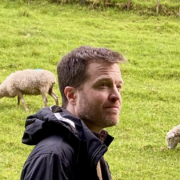Soil & Health celebrates: Federated Farmers drop legal action around GMOs
25 May 2018
MEDIA RELEASE
Soil & Health celebrates: Federated Farmers drop legal action around GMOs
Following years of court action for a precautionary approach to genetically modified organisms (GMO), the Soil & Health Association today welcomed Federated Farmers’ decision to drop legal challenges to several local council resource management plans controlling their outdoor use.
Federated Farmers has run a number of cases before the courts challenging the rights of communities in Auckland, the Far North and Whangarei to manage the outdoor use of GMOs within their own districts and regions. The courts continued to find that territorial authorities have the right under the Resource Management Act (RMA) to set their own policies and rules controlling GMO use, a finding that Federated Farmers repeatedly challenged.
Marion Thomson, Soil & Health National Council Member, today welcomed Federated Farmers’ decision and congratulated the organisation for seeing the sense in dropping further litigation, allowing Councils to get on with making GMO policies and plans that reflect the needs of regions and communities.
“Soil & Health has held grave concerns about the potential impact of GMO land use on regions dependent on an agricultural export sector increasingly reliant on non-GMO requirements of key trading partners.
“This affects both the traditional agricultural sector and New Zealand’s growing organic sector. There are significant premiums for producers who can provide non-GMO certification. It takes hard graft and time to obtain certification, and accidental contamination of a non-GMO farm would have significant long-term economic consequences for a no GMO exporter,” says Ms Thomson.
“The New Zealand environment and our local communities should not be guinea pigs for GMO land use, and therefore we welcome the news about Federated Farmers’ back-down.
“This is about allowing regions and districts to regulate potential GMO land use in a way that protects existing agricultural sectors and reflects community preferences. Soil & Health supports farmers and communities across the country who want to keep New Zealand clean, green and GE-free and today is a huge step towards allowing our communities to do this,” says Ms Thomson.
Auckland Council, Far North District Council and Whangarei District Council all prohibit the general outdoor release of GMOs and made field trials a discretionary activity with performance standards in place, whilst Northland Regional Council adopted a precautionary approach in its regional policy statement.
“The controls these Councils have introduced under the RMA help to protect New Zealand’s biosecurity, our economy and our environment by requiring additional local protections that are not currently required by the national legislation under the Hazardous Substances and New Organisms Act.
“There is real potential for serious economic loss to regions exporting their products and attracting tourism under New Zealand’s clean, green brand if GMO land use were permitted, as well as there being uncertainty around the potential adverse effects on our natural resources and ecosystems,” says Ms Thomson.
Soil & Health, representing organic and GE-free farmers, primary producers, home gardeners and consumers across New Zealand, has long campaigned against Federated Farmers in each case.
“This back-down by Federated Farmers is a significant milestone in our fight for a precautionary approach to the outdoor use of GMOs in New Zealand. Soil & Health’s members, as well as a number of other individuals and support groups, have contributed a significant amount of financial investment in to this cause, as well as giving their time to publicly voicing their concerns, and we whole heartedly thank them for their efforts,” says Ms Thomson.
ENDS
MEDIA CONTACT:
Marion Thompson
National Council Member
Soil & Health Association
027 555 4014








